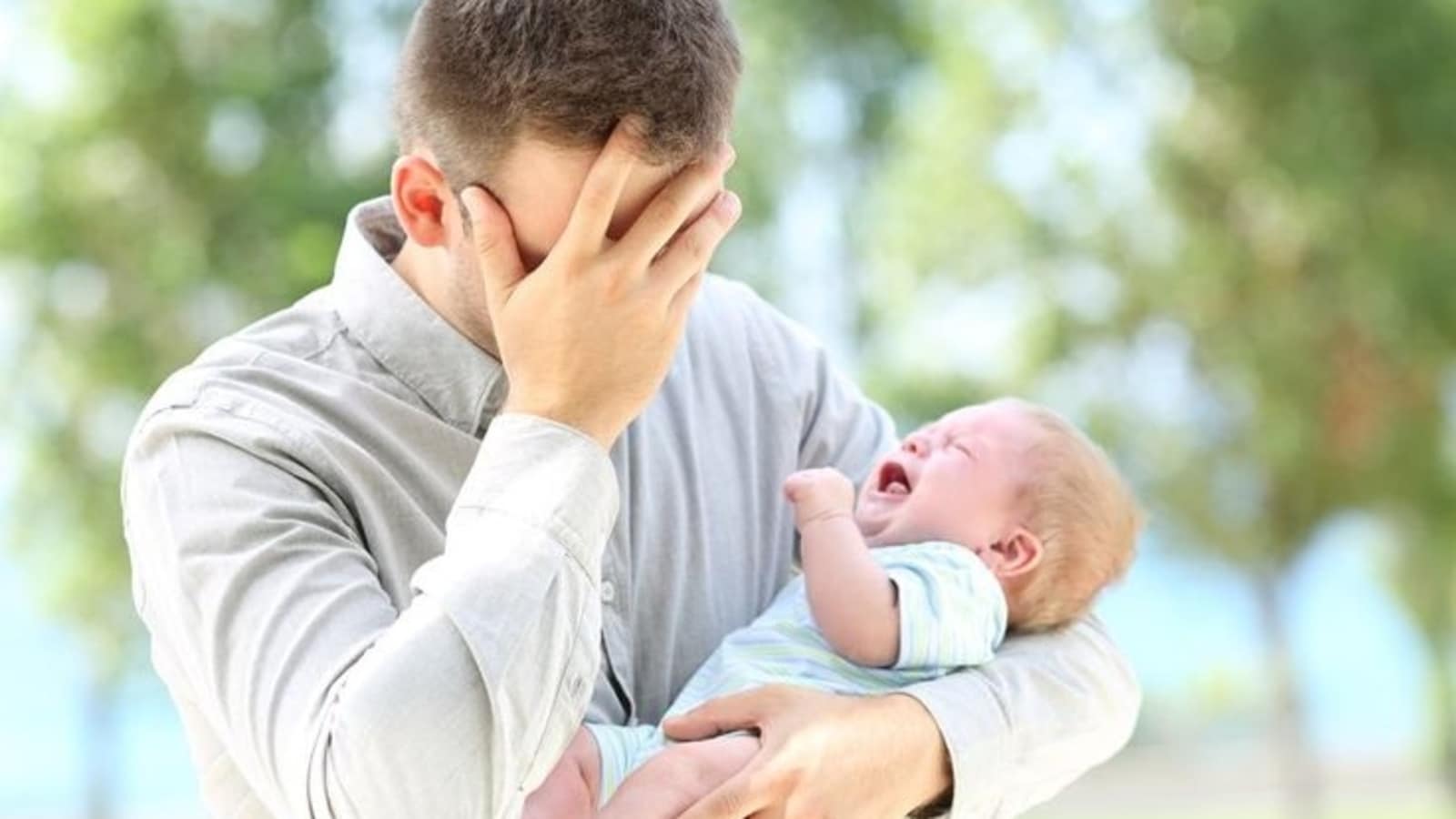
[ad_1]
Zarafshan Shiraz, New Delhi
Many parental factors always impact a child’s development, mental state and behaviour where one of them is the parents’ mental health. An adult who is mentally unstable, cannot cope with stress; challenges and misbehaviour by children, might be overwhelming to such parents.

Under dire stress, they end up behaving inappropriately. In an interview with HT Lifestyle, Dr Asmita Mahajan, Consultant Neonatologist and Paediatrician at SL Raheja Hospital in Mahim, shared, “Sometimes even an abusive parent may love the child deeply, and yet they are psychologically unable to provide a consistent parenting skill that kids need their parents to have, for fostering good behaviour in the kid.”
She explained, “A mother or father with depression may falsely think that their child had a greater problem than they actually do. Such parents unfortunately end up having kids with behaviour and adjustment issues. A depressed parent does not have energy enough to handle his or her kids well. They may have inadequate patience or tolerance to calmly deal with misbehaving kids or stressful situations.”
She highlighted the parenting styles and effects as –
- Authoritarian parenting: It is the most common style in India, (nearly 62 per cent). Strict rules, high expectations, and a limited display of warmth. Children raised by such parents are often obedient and well-behaved, which can lead to academic success and good social skills but they may resent their parents and struggle with decision-making and independent thinking.
- Permissive Parenting: Only 17 per cent of Indian parents are marked by a high level of warmth and few restrictions, allowing children more freedom. This can result in happier and more creative children but with spoiled and undisciplined behaviour, and lacking in self-regulatory mechanisms.
- Uninvolved parenting: It is the least common style in India, (only 8 per cent) characterized by low levels of both warmth and control. These kids are independent and self-reliant but the neglect can result in poor emotional development and low self-esteem.
Further, Dr Asmita Mahajan advised the dos and don’ts of parenting:
- Do understand your child’s unique characteristics before deciding the parenting strategy.
- Keep realistic expectations from your child.
- Do seek therapy for your own mental anxiety or depression, as needed.
- Provide love and help your child build self-esteem.
- Accept your child; show approval and praise.
- Be consistent in your discipline techniques.
- Be sure to set strict and firm limits. Do not forget to enforce the limits after setting them.
- Do not change your strategy within different family members. Even grandparents have to adopt similar style of discipline as you.
- Do not suppress your child’s expression of their feelings.
Recommending some tips for parents, she suggested:
- Give handwritten praises to your child. Be sincere and genuine in your praise; they treasure it. Praise should be descriptive and specific. Also, add physical affection to the praise. A hug and a cuddle go a long way to make a child happy.
- Do not criticise the child too much, especially in front of others.
- Reinforce desired behaviour with instant praise.
- Use rewards to reinforce good behaviour, however, don’t use rewards to stop misbehaviour. Ignore certain misbehaviour. By talking too much about it, kid may feel empowered that they have ability to upset you so much.
- When you are stressed, try deep breathing exercises.
- Tune out other people in a public place. Don’t respond with harmful discipline just because others are watching.
- Use soothing music to calm down, work out or read a book.
- Call someone or look for professional support when needed in anxiety attack or severe depressive attack.
- ‘Parent time-out’ – you can tell the kid you need time away for 15-30 minutes.
- Impose time out for misbehaviour by your child. It should be age appropriate, for example one minute per year of child’s age. Be gentle but firm.
- Talk very little or not at all during punishment. This is extremely important and most of us fail at this.
- Use punishment immediately after misbehaviour. Do not remove a reward or privilege for too long. Moderate and consistent punishments are more effective than longer intense ones.
Catch your daily dose of Fashion, Health, Festivals, Travel, Relationship, Recipe and all the other Latest Lifestyle News on Hindustan Times Website and APPs
[ad_2]
Source link








